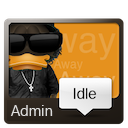PL/SQL fundamentals
- Declaring variables
- Anchoring variables to database definitions
- Flow control constructs
Oracle 10g and 11g PL/SQL features
- PL/Scope in Oracle 11g
- CASE statement process flow
- Referencing PL/SQL records in DML
- Improving performance with native compilation
- Handling regular expressions with Oracle 10g functions
- Compound triggers in Oracle 11g
- Multiset operators for collections
Maintaining data with DML statements
- Employing the RETURNING INTO clause
- Solving the fetch-across-commit problem
Managing data retrieval with cursors
- Implications of explicit and implicit cursors
- Cursor attributes
- Simplifying cursor processing with cursor FOR LOOPs
- Embedding cursor expressions in SELECT statements
Cursor variables
- Strong vs. weak cursor variables
- Passing cursor variables to other programs
- Defining REF CURSORS in packages
|
Collection types
- PL/SQL tables, nested tables, VARRAYs
- Stepping through dense and nonconsecutive collections
Bulk binding for high performance
- Moving data into and out of PL/SQL blocks
- BULK COLLECT INTO
- FORALL
- BULK cursor attributes
Finessing the compiler
- The EXECUTE IMMEDIATE statement
- The RETURNING INTO clause
Types of dynamic SQL
- Building SQL statements during runtime
- Autogenerating standard code
- BULK EXCEPTION handling
|











